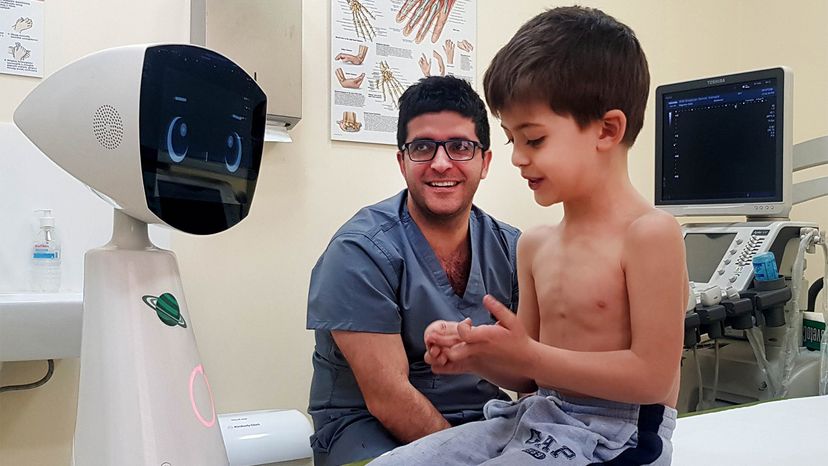
A big deal is made of the poor parents quarantined during a pandemic with toddlers, or roommates stuck together in an apartment they can't escape, but what about the lonely people who have nobody to talk to?
As common as feelings of loneliness and isolation are during a pandemic, experiences like extended hospital stays or being immobilized due to poor health, disability or age can be intensely lonely. But maybe artificial intelligence can help?
Advertisement
A friendly robot named Robin recently got a test run in the pediatric center of the Wigmore Clinic in Yerevan, Armenia. About as tall as an 8-year-old child, Robin's conical plastic body and rectangular head may not put you in mind of a human buddy, per se, but its conversational skills and face screen containing two giant eyes and expressive brows are compelling enough to help hospitalized children forget their loneliness for a little while.
A hospital can be very stressful for anybody. But frequent invasive procedures and drawn-out therapies that might seem tiresomely long to an adult stuck in a hospital bed, seem unbearable and everlasting to a child who can't play with their friends or sometimes even family. That's where Robin comes in. It can recognize facial expressions and use the context of a conversation to build personalized, natural interactions and dialogue with a lonely child in the way another child might. Robin also plays games, tells stories and engages children in various other activities that distract from stress and pain.
According to Expper Technologies, the makers of Robin, during the pilot with Wigmore Clinic, Robin improved the experience of children in the hospital by 26 percent over those who did not have access to Robin, and reduced their stress levels by 34 percent during their hospital stay.
Advertisement
